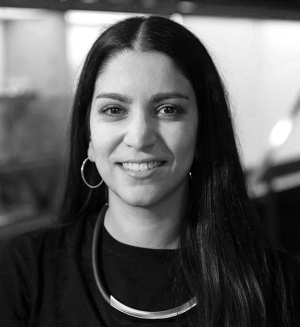What makes you happy — truly happy? It’s a simple question, yet one that many of us struggle to answer concretely.
It’s been tougher than usual to gather with family, friends and co-workers lately without discussing challenging and divisive issues at home and abroad. There’s a lot happening so fast, and with so much turmoil and change it’s easy to feel guilty about prioritizing personal happiness and well-being.
“Whenever a challenge happens, I ask myself what I can be grateful for,” says Julie Hanck, BSc 04, a psychology teacher at Montreal’s John Abbott College. She, along with fellow Concordia alumni and researchers, shares insight into how we can practise happiness in our own lives, as well as some of the factors that might help determine it. “Our role is to embrace the ups and downs,” she adds.
It can be easier said than done, but part of embracing both the good and the trying times is remembering that we can properly address the latter through collective action and cooperation. These challenges are beyond the capacity of any one person, group or country to solve alone, and a call for solidarity resounds profoundly.
Solidarity demands that we listen to one another, that we be patient and open to recognizing the value derived in viewpoints different than our own. We’re living in an era defined by technological innovation and connectivity where it’s easier than ever before to work together with people from all areas of the world, allowing us to be far better equipped to find solutions.
Nowhere is this more evident than on university campuses. If I think about what I can be grateful for — what makes me happy — one of the reasons is being immersed in a community where researchers, students, alumni, donors and staff join forces to better society. Our cover story, “Clearing the air”, is just one example. Across disciplines and industries, amid increasing and worsening wildfires, Concordians are conducting research to help improve the quality of the air we breathe.
In this issue, you’ll also meet our latest cohort of Top 50 Under 50 Shaping Tomorrow. These talented alumni are leading the way in their respective fields while helping to advance human rights, environmental protection, technological innovations and much more. You will also learn more about Women Who LEAD — our revamped Women and Leadership program — and how our community is helping to empower our 116,000 alumnae around the world.
These stories remind me that despite the challenges, our planet is also brimming with opportunities to bring about positive change.
In just a few months’ time, Concordia will be celebrating a major milestone — 50 years since the merger of our founding institutions, Loyola College and Sir George Williams University. My thanks to those of you who took time to tell us your stories. If you graduated in 1974-75 and have some Concordia memories to share with us, you still can.
We’ve officially gone down to printing just two issues of Concordia University Magazine per year. That said, we’ll already begin showcasing some of our 50th-anniversary content in our next issue, spring 2024. I can’t wait to share these stories with you and to start rolling out some of the exciting activities the university has planned for this golden year — I look forward to celebrating with you!
Before signing off, I would like to express my sincere thanks to our associate editor, Ian Harrison, BComm 01. I am always grateful for the central role he plays in our magazine’s success, but his contributions to this issue, in particular, merit extra credit. Thank you, Ian.
Until the next issue, I wish you all the best.
